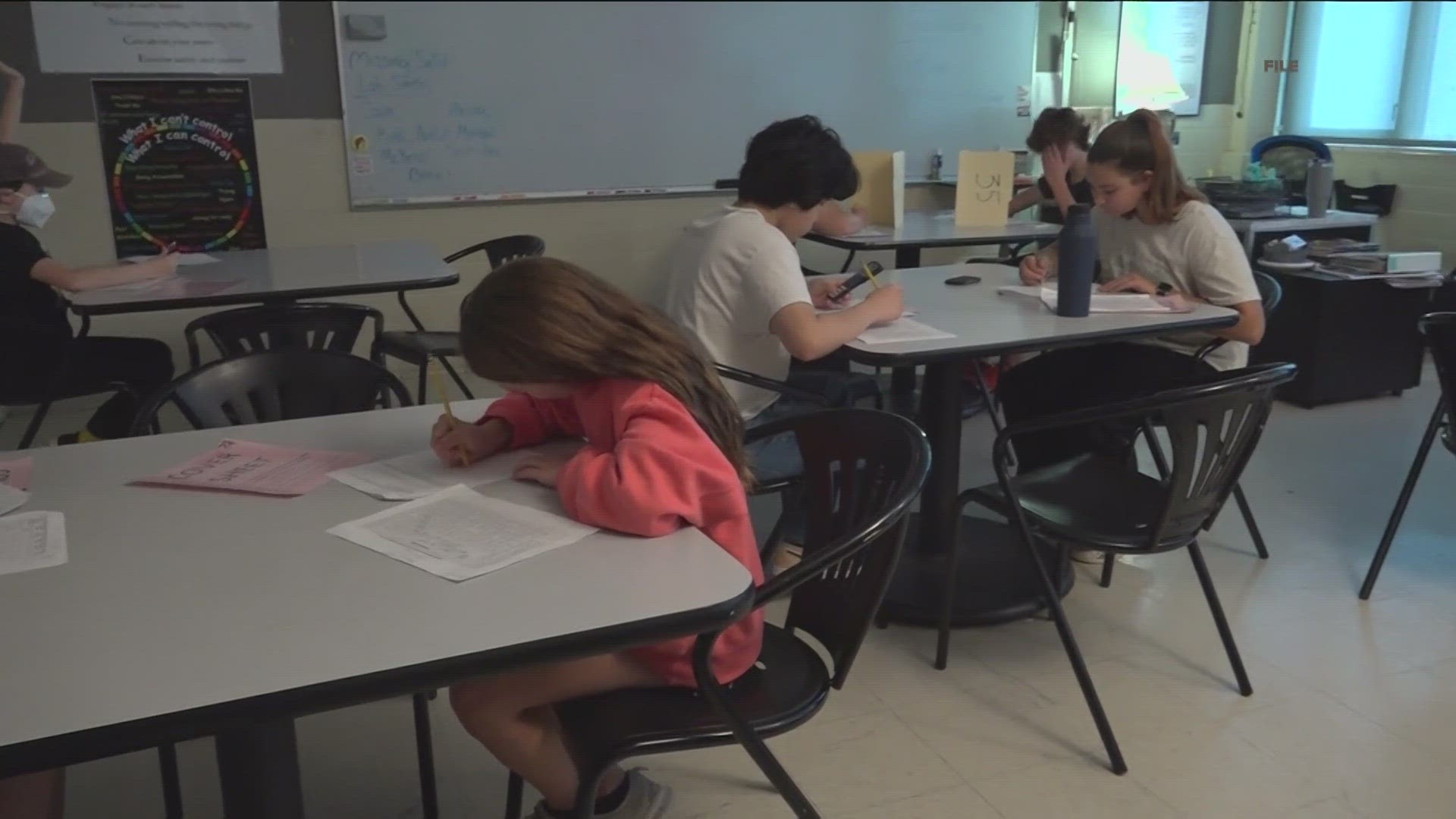COBB COUNTY, Ga. — Changes are coming for special education students at Cobb County Schools. Some of those students are being moved into general education classes.
Heather Allison's 13-year-old son has autism. She said her son would not do well with that change.
"If he’s in a class with 25 other kids and one teacher, he’s not going to get that one-on-one time that he needs. It’s just been really hard. He gets overwhelmed being around a lot of people and he likes having his small class," Allison said.
She said her family moved to Cobb County Schools nearly two years ago when their previous school district got rid of some special education services.
“We came here thinking, Cobb’s going to be so much better. It’s a big county, they have more services," she said.
Allison said she found out through her son’s teacher that starting next school year, special education services are changing in the district, moving some students to general education classes.
In preparation, she moved her son to regular classes to try and get him used to this possible change.
"It’s just not working. He’s being suspended, he’s being disruptive and it’s not that he’s meaning to. It’s just that he’s getting so overwhelmed with these new changes, and he doesn’t know what to do," she said.
President of the Cobb County Association of Educators, Jeff Hubbard, said the changes won’t impact every special needs student. Instead, it will be a case-by-case situation based on the individual needs of the child.
"Not only is it giving more opportunity to boost and grow the child's academic, social and emotional potential, it's also providing the system with the tools to where we're now getting more kids into exposure into gen ed classes," he said. "It still guarantees the parent choice to do what they think is right for their child's IEP needs as well.”
In a statement, a district spokesperson said:
“To better support the needs of Cobb students, some families may see changes in how their individual child is supported. We encourage families with questions to talk to their child’s case manager about the individual needs and supports for their child. Every student will continue to receive individualized support and their full continuum of services, according to their IEP.”
Allison says that to this day, she has not heard anything from the district. 11Alive asked Hubbard about this.
"You've got 180,000 students in Cobb County. While we have the capacity to send out targeted emails, it would - in my opinion - only create more questions than answers. So when your child has their annual IEP conference, which comes up, and they're already starting going through March, they can get the answers right there," he said.
Hubbard said principals found out first, following school student support, then student support administrators, then teachers and the case managers.
He added that in those meetings, parents, the student’s case manager and special ed teachers will work together to determine what setting will work best for the child.
“Unless it is something that is going to be severely detrimental to the child's educational, social, emotional and behavioral and physical well-being, then we make it happen that that is a federal mandate. So the parents are in control," he said.
As for teachers, Hubbard says no cuts will be made, but they might need to hire more to co-teach in a general education setting.
"As we put more children into different settings, we're going to need co-teachers. We may now have students with special needs who maybe need a co-teacher, maybe for a reading disability, some type of dyslexia, a learning disability, dealing with mathematics and numbers," he said. "The most likely occurrence is we may have some teachers have their job assignments changed. They may have their work site changed based upon the student needs and student enrollments in these programs."
Hubbard adds that these changes allow students the option to engage and learn in a bigger group setting, which he says was unlearned during the pandemic.
"Coming out of COVID, we've got learning loss for every child, whether they're special needs, special ed, gen ed, the advanced, gifted and talented program," he said. "So one of the questions is how do we best not only address that but then also for these children who do not need to be in special ed in every classroom, how do we address that IEP to give them the best and most free education possible? So it's a way of not only addressing the Covid learning loss, but also we saw that we had children who were not reaching their full potential. And the school system said this is something we've got to address."

